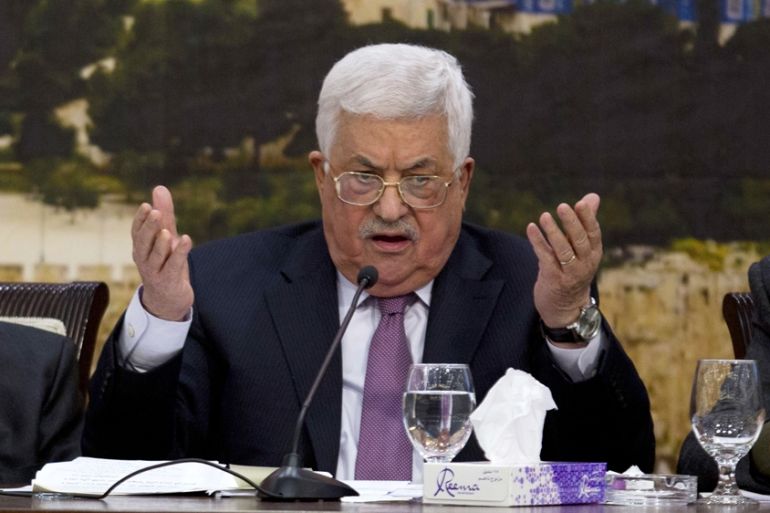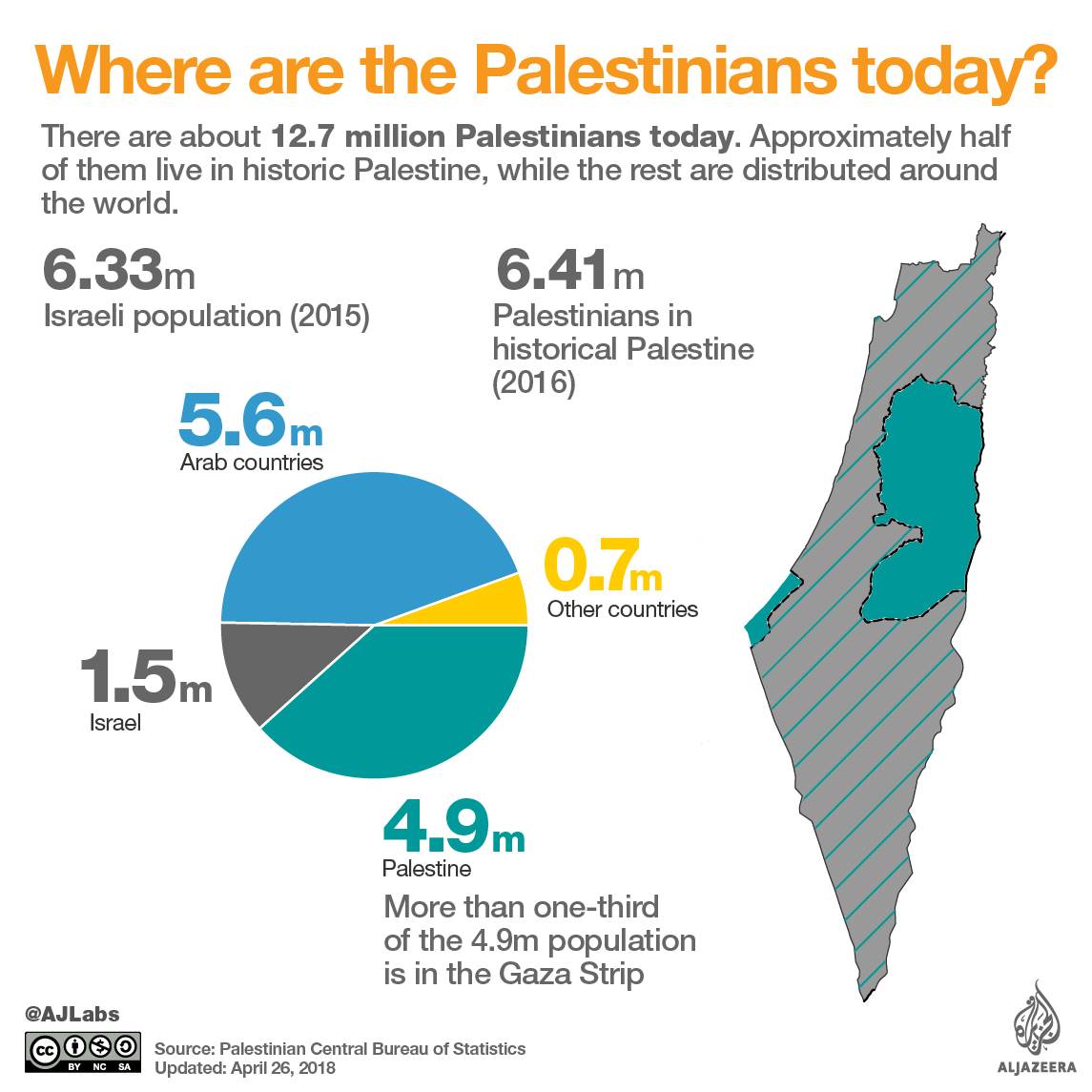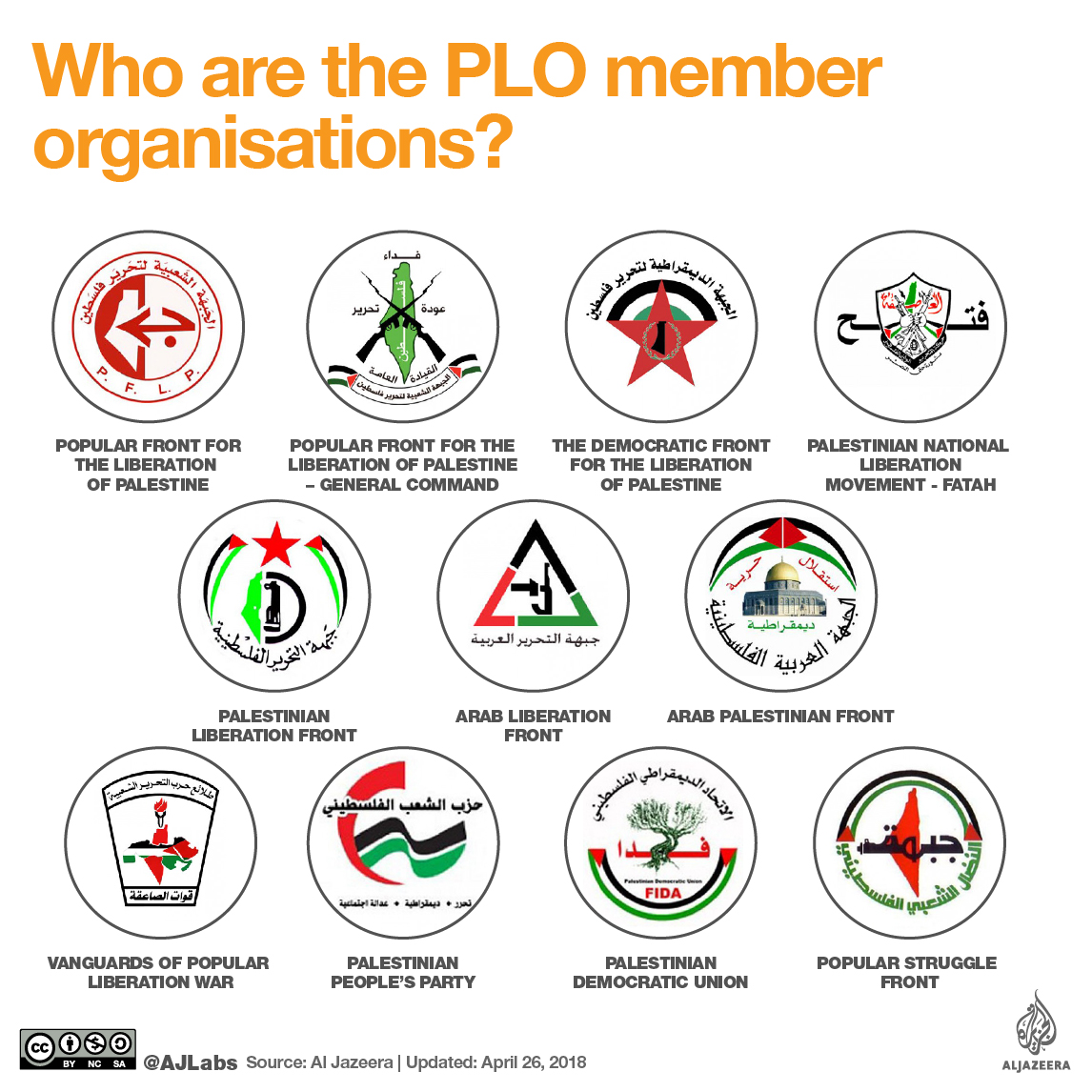Palestinian National Council to discuss ending ties with Israel
In first meeting in nine years, Palestinian National Council is set to discuss suspending recognition of Israel.

The legislative body of the Palestinian Liberation Organization (PLO) is set to discuss suspending the recognition of Israel, in addition to several other critical issues of Palestinian politics.
For the first time in nine years, the Palestinian National Council (PNC) is scheduled to convene in Ramallah on Monday, in a meeting that has Palestinians split between supporters and opponents of the gathering.
Keep reading
list of 4 itemsRussia-Ukraine war: List of key events, day 791
US top diplomat Blinken calls for ‘level playing field’ for firms in China
Why are nations racing to buy weapons?
Critics of President Mahmoud Abbas have rejected the PNC meeting as a shrewd political manoeuvre, while others see it as a potential turning point in Palestinian politics.
The PNC is expected to vote in a new 18-member Executive Committee of the PLO, the governing body of the organisation, and discuss transforming the Palestinian Authority, which governs parts of the occupied West Bank, into a state with its own institutions and monetary system.
Dominant Palestinian faction, Fatah decided to push ahead with convening the PNC, despite the Popular Front for the Liberation of Palestine (PFLP) boycotting the meeting.
Hamas is not invited to the council meeting, even as the topic of Palestinian reconciliation is high on the PNC agenda.
“This meeting is vital to continue the Palestinian efforts to end divisions and fragmentation between Palestinian factions,” said Wasel Abu Yousef, a current observer-member of the PLO Executive Committee, and head of one of the smaller Palestinian factions, the Palestine Liberation Front.
“[The PNC will] elect new executive bodies that will push forward, in support of Palestinian national rights,” Yousef added.
PLO’s Executive Committee member Saeb Erekat told Al Jazeera that “this meeting is a turning point for the Palestinians in this critical junction.”
Explaining why the PNC needed to convene after being dormant for years, Erekat told Lebanese media that “successive Israeli governments were never interested in two states – Israel and Palestine living side by side”.
“Rather, what they wanted all along was one state – Israel – with two systems; an apartheid state,” Erekat told Beirut-based Al Mayadeed TV.

PNC agenda
Mohammad Shtayyeh, a member of Fatah’s Central Committee, told Al Jazeera that “the reason behind electing a new PLO Executive Committee is to ensure the legal framework and continuity of representation of the Palestinian people.”
The PNC’s agenda will also discuss the United State’s positions on Israel – especially the US’ recognition of Jerusalem as Israeli capital – and ways to deal with the measures.
“No Palestinian will accept dealing with the United States so long as it insists on its positions on Jerusalem and being against the rights of Palestinian refugees to return home,” Erekat said.
Palestinians have consistently demanded that the Arab eastern side of the holy city be recognised as their future capital.
Israel occupied the east side of Jerusalem during the 1967 war, along with the West Bank, Gaza Strip, Golan Heights and Sinai Peninsula. In 1980, Israel annexed East Jerusalem, in contravention of international laws regarding land occupied during wars.
The PNC meeting will also discuss calls to suspend PLO recognition of Israel, cut all ties and agreements with it, and discuss resistance to the Israeli occupation of Palestine in peaceful means.
In addition, the PNC will discuss is the transformation of the Palestinian Authority from an authority based on the Oslo agreements to a formal state in the occupied territories.
It is also expected to discuss Palestinian reconciliation efforts to end the division between Fatah and Hamas, which governs the Gaza Strip.

Abbas power play?
Critics, however, argue that Abbas’ insistence to convene the PNC is motivated by ensuring his legacy and preserving the interests of his Fatah faction.
They fear that once Abbas, 82, guarantees the formation of a loyalist PNC and PLO executive body, he would then work to guarantee the continuity of his vision after he leaves the scene.
Maher Obeid, a senior Hamas official, told Al Jazeera that Abbas did not want Hamas to participate unless it surrenders to its conditions and gives up its armed resistance to Israeli occupation.
“Abbas wants to exact revenge on Hamas for his own personal reasons,” Obeid said.
Hamas issued a statement rejecting the “convening of the Council under the bayonets of the occupation”.
After declining the invite, the PFLP, one of the main factions of the PLO, said that the PNC should only be convening to unite the Palestinian factions.
Palestinian activist Wael Malalha, who lives in Amman, said the upcoming PNC session in Ramallah is aimed at imposing Abbas’ views on the future of the Palestinian national movement.
“Abbas has one specific vision and one agenda; self-preservation,” he said. “The US, Israel and their Arab allies are mounting great pressure on the Palestinians to accept the so-called ‘deal of the century’,” said Malalha.
“Abbas wants to accept this deal and wants the PNC and the Executive Committee to give him the political cover to accept it,” he added.
According to regional press reports, the “deal of the century” is a purported agreement between the US, Israel and Arab allies Jordan, Saudi Arabia, United Arab Emirates (UAE) and Egypt, to end the two-state solution and divide or share sovereignty over the Palestinian population in the occupied territories between Israel, Jordan and Egypt.
Several Palestinian organisations and independent figures have called on Abbas and Fatah to cancel this meeting because it would cement Palestinian divisions and fragmentation.
Is the PNC still relevant?
First convened in Jerusalem in 1964, the PNC now counts 723 members. After the Israeli occupation of the Palestinian territories in 1967, the PNC came to be considered as the de facto Palestinian parliament, with many of its members living in exile.
The idea for it was to represent Palestinians around the world, their political parties, and their trade and professional syndicates.
The last ordinary session of the PNC was held in Gaza in 1996, when Yasser Arafat was the chairman of the PLO and recently appointed president of the Palestinian Authority.
In that session, the parts of the PLO Charter that denied Israel’s right to exist were nullified.
In 2009, Abbas convened an extraordinary session of the PNC in Ramallah.
According to the Palestinian national charter, the PNC is the highest Palestinian governing body, and its members are supposed to be elected to represent Palestinian communities from around the world in the countries where voting for PNC membership is possible.
However, after signing the Oslo peace agreement between the PLO and Israel in 1993, which resulted in the formation of a local Palestinian Authority and Legislative Council, the PLO and PNC were left on the margins.

Follow Ali Younes on Twitter @Ali_reports